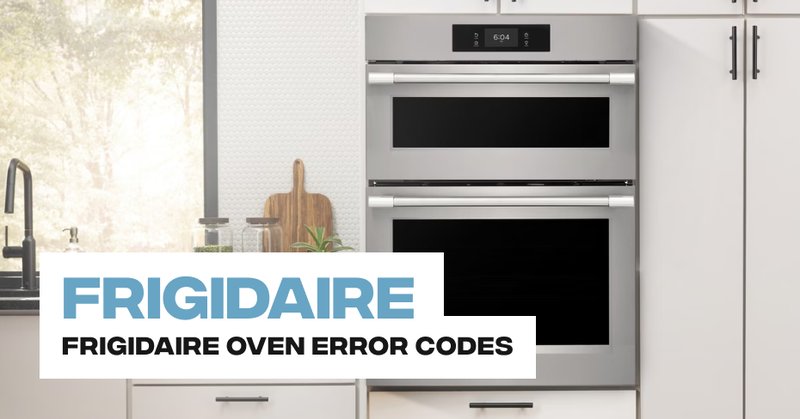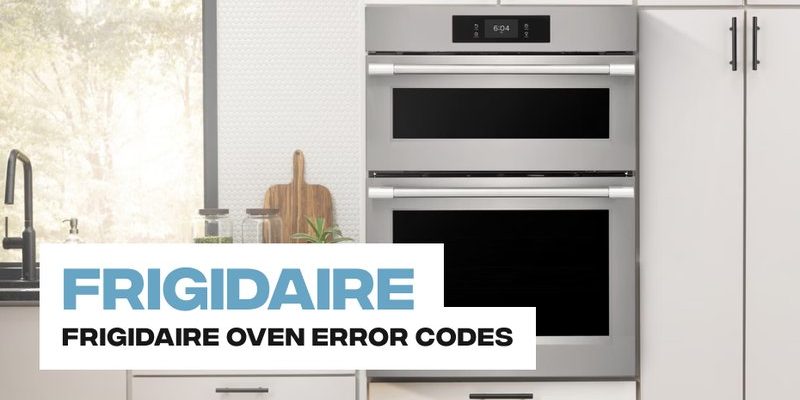
When we talk about the “F1” error code on Frigidaire ovens and ranges, it generally refers to an electronic malfunction. This typically involves the electronic oven control (EOC) board or touchpad, which are crucial for the appliance’s operation. Ignoring it could be like ignoring a persistent toothache; it might get worse if you leave it unchecked. Let’s dive into the heart of the issue and figure out what’s behind that pesky error.
Understanding the F1 Error Code
The F1 error code on Frigidaire ovens isn’t just blinking to get on your nerves. It usually indicates a problem with the oven’s electronic control or its internal components. Imagine your oven’s brain sending a “help” signal because it’s having a tough time processing commands. This could be due to a faulty electronic control board, which acts like the central nervous system, or a problematic keypad, which serves as the input panel.
A common cause for this error is a short circuit or a connection problem within the control board. Think of it as a loose wire in an old Christmas lights string — it might work sometimes, flicker at others, or not work at all. The error might also pop up if there is a defective oven sensor, which is responsible for regulating the oven’s temperature. If the sensor incorrectly reads the temperature, it could disrupt the entire cooking process.
Now, you might be tempted to keep using your oven despite this error code. But consider this: doing so could cause further damage, not just to the oven, but potentially to your entire cooking routine. If the problem escalates, it could lead to inconsistent temperatures or even complete failure of the appliance. Before you know it, your oven might stop working altogether, leaving you without a crucial kitchen tool.
What Should You Do When You See F1?
So, you’ve seen the dreaded “F1” error flashing, and you’re wondering what to do next. First things first: don’t panic. Like most issues in life, this one can be sorted out with a bit of troubleshooting. Start by giving your oven a little reboot. Just like when your computer is acting up, sometimes a restart is all it needs. Turn off the power to the oven by unplugging it from the wall or tripping the circuit breaker. Wait a few minutes, then power it back up to see if the error persists.
If the error code still appears, it’s time to dig a bit deeper. Check if the touchpad or the buttons are unresponsive or acting erratically. If they are, there might be a problem with the touchpad itself. Here’s a simple tip: a friend of mine once had success by cleaning her oven’s touchpad with a damp cloth. Just make sure the oven is off to avoid any electrical issues during the cleaning process.
Should these steps not resolve the problem, it might be time to consider calling in a professional. They can perform a more comprehensive diagnostic to identify the exact component causing the issue. While calling a professional can seem like an unwanted expense, it’s often cheaper than needing to replace the entire oven if the problem worsens.
Prevention and Maintenance Tips
Catching the F1 error early and taking action is important, but maintaining your oven to prevent similar issues is even better. The best way to avoid electronic glitches like this one is regular maintenance. Keeping the control panel clean and free of debris can prevent many common problems. It’s a bit like brushing your teeth; regular care prevents bigger problems down the line.
Keeping an eye on how your oven is performing can be beneficial too. If you notice any irregular behavior — like inconsistent heating or strange noises — don’t wait for an error code to pop up. Take action early by running the necessary checks or calling for a professional assessment. Prevention is always better (and cheaper) than cure.
And, remember, your oven is an important part of your kitchen toolkit. Treating it with care, just like any other appliance, will ensure it stays reliable for years to come. Stay alert for any warning signs and address them promptly to keep your oven, and your meals, cooking without a hitch.
